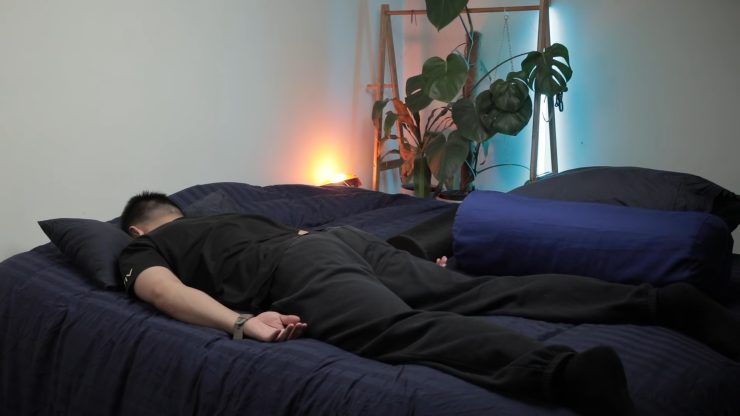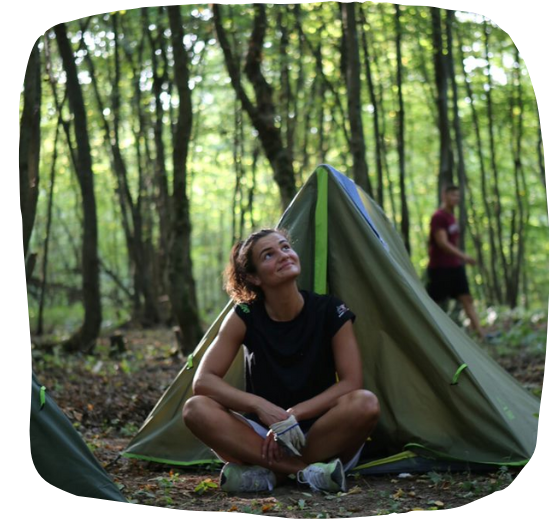Almost 80% of adults will have back pain at some point during their life. Age, pregnancy, weight, and genetics can all play a factor, but this type of health issue can ultimately affect anyone.
Hunching over a laptop for long periods of time increases the risk of experiencing a stiff and aching back. Although many people do not initially notice poor posture, it can frequently disturb sleep. That begs the question: are hammocks good for your back?
Whether back pain is due to job-related injuries, stress, or poor sleeping, spinal or muscular pain in the back can greatly impact one’s quality of life. Hammocks are one way to alleviate pain without the use of medication potentially.
Contents
Back Pain and Insomnia

Back pain can affect sleep in a number of different ways. Those who experience muscle soreness frequently toss and turn, causing a restless night with little sleep. Even if a comfortable position is found, this new posture may not be in alignment with a healthy spine. Although taking medication is a viable option, side effects can also influence the quality and quantity of sleep.
Insomnia is a likely outcome of back pain. A lack of sleep can cause drowsiness, irritability, and even depression. Even experiencing only a few days without quality sleep can have consequences to one’s health and life. For optimal physical and emotional health, a good night’s sleep is key.
Finding the answer to back pain can be difficult. While exercise and medication may not be efficient, hammocks can help alleviate pain and correct poor posture from sleeping in problematic positions.
Are Hammocks Good for Your Back?
Are hammocks good for your back? In short: yes. When pressure is eased off the joints, stiffness and sore muscles have a chance to rest. Hammocks provide the perfect relief from arthritis and inflammation in the back.
Since there are no contact points between a mattress or hard surface and the back, there is less pressure forced upon the spine. Hammocks allow for the back to ease into an aligned position that may otherwise feel foreign or uncomfortable. Once equal pressure is distributed throughout the entire body, spinal posture is much easier to correct.
Hammock back pain is extremely rare. The ideal sleeping position requires lying flat on one’s back. Since this position is not comfortable for many people already suffering from back pain, hammocks play a crucial role in easing the spine. Because hammocks provide a natural posture for soothing backs, insomnia is much less likely to occur.
Back Alignment
Lying on one’s back is the best sleeping position for a healthy posture. This position helps back pain by allowing the body to rest naturally. Unfortunately, back sleeping does not come naturally for most people. Although using the right type of pillow can help, switching positions is often subconscious and easy to do when there is any discomfort during sleep.
The Positives to Back Sleeping
Back sleeping can do wonders for health. Neck pain, acid reflux, and shoulder pain have all been reduced by correct sleeping posture. By putting less pressure on the internal organs, weight and comfort can be distributed evenly throughout the body.
The Negatives of Back Sleeping
Back sleeping can often feel uncomfortable. Many people prefer to sleep on their side or stomach even if it may cause more overall pain. It is possible to learn how to sleep in a different position, but it can take time and practice that may provide little initial sleep.
Hammocks can help with back sleeping. Since there are no pressure points, back sleeping can feel like floating. Once there is no more pain associated with sleeping in the correct spinal position, back pain can disappear within a matter of days.
Hammock Safety
Some people may feel an initial adjustment when sleeping on their back, but hammock back pain is rare. Regardless if a hammock is strung from two trees or with a base that can be used indoors, hammocks are durable and safe for an entire night’s sleep.
References:
https://www.webmd.com/sleep-disorders/news/20110621/hammocks-help-you-sleep
https://www.healthline.com/health/sleep/sleeping-in-a-hammock


